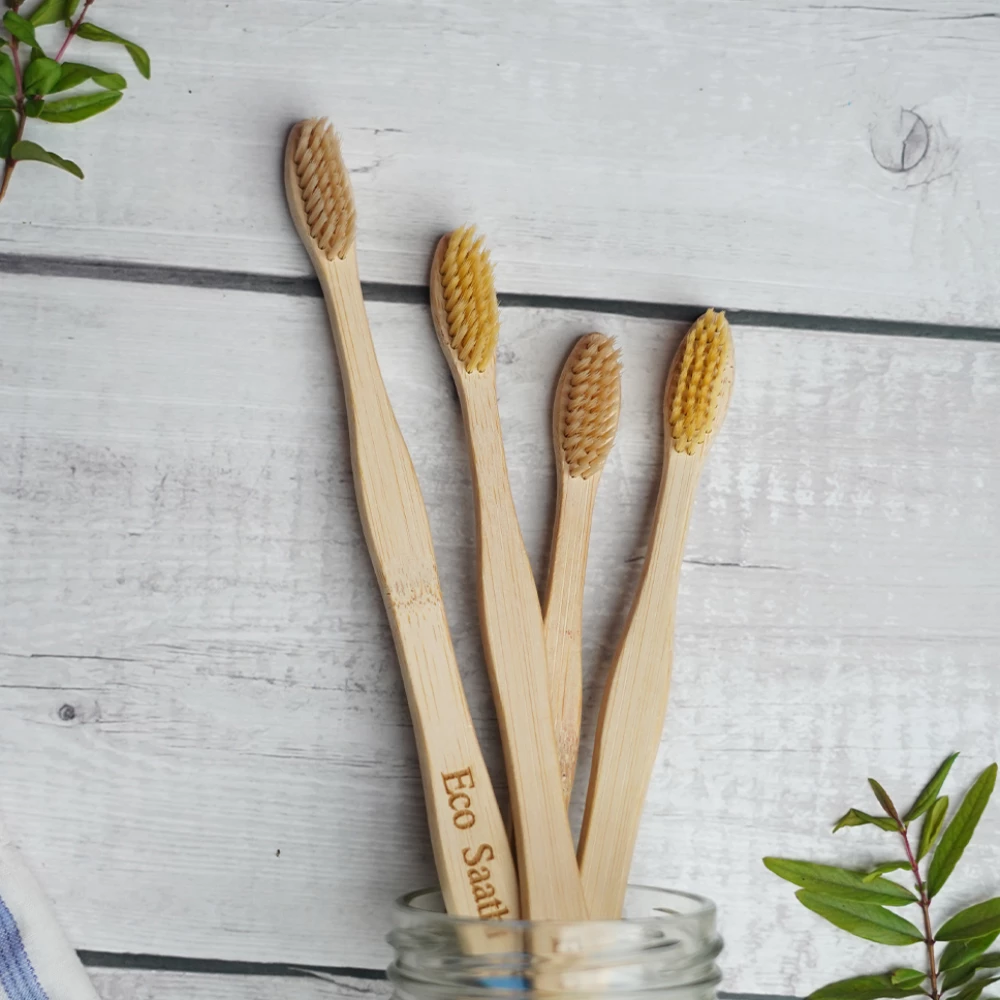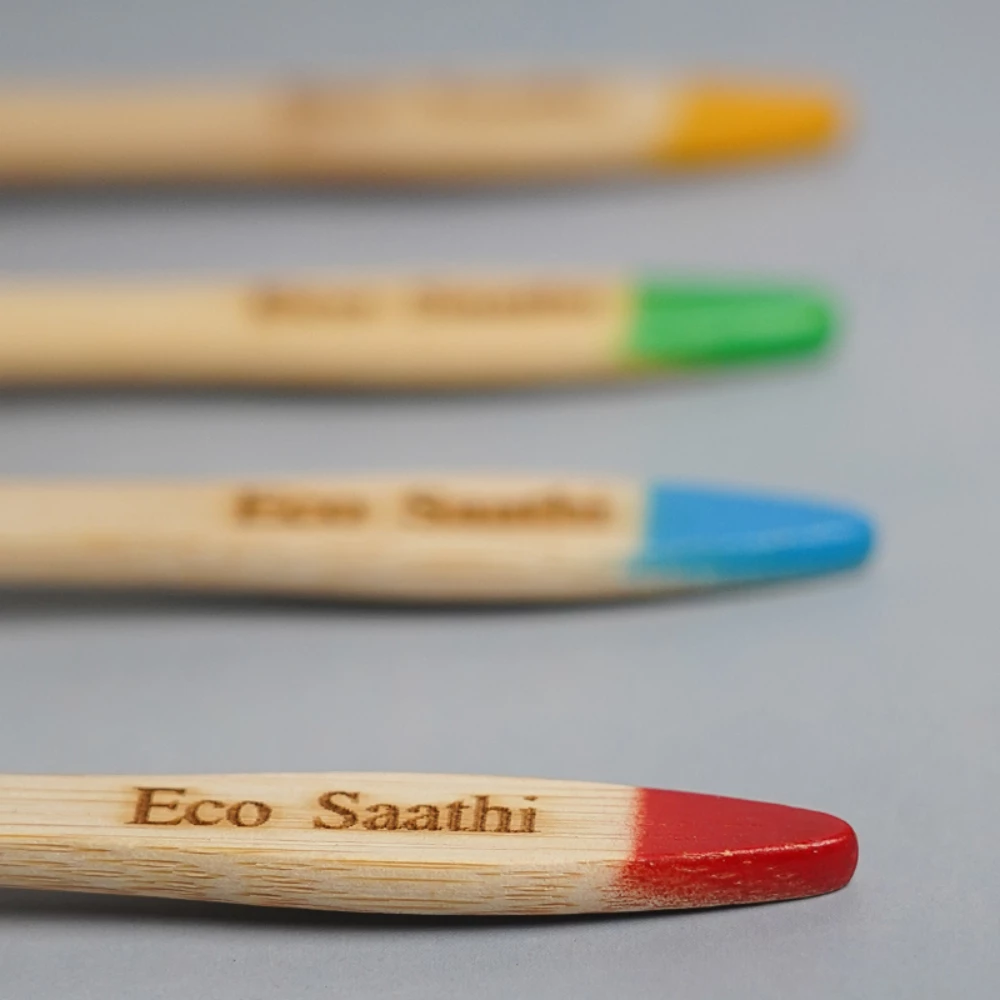Pack of 4 Natural Bamboo Toothbrush for Adults
₹180.0
– Material : Bamboo
– Antimicrobial and BPA free
– Bristles made up of natural bamboo fibre
– Splinter free and good life span
– Eco Friendly and Sustainable
- Description
- Additional information
- Reviews (0)
- Q & A
- Sustainability Remark
- More Offers
- Store Policies
- Inquiries
| Material | Bamboo |
|---|
You must be logged in to post a review.
Q & A
Bamboo is often touted as an eco-friendly material due to its rapid growth, renewable nature, and various applications. Here are some key points regarding the sustainability of bamboo products:
Rapid growth: Bamboo is one of the fastest-growing plants on Earth, with some species capable of growing up to 91 cm (36 inches) in a single day. This fast growth allows for quick and sustainable harvesting, making it an attractive alternative to slow-growing trees used for timber.
Renewable resource: Bamboo is highly renewable because it regenerates quickly after harvesting. Unlike hardwood trees that can take decades to mature, bamboo can be harvested within 3-5 years, depending on the species. This quick regrowth ensures a consistent and sustainable supply.
Low environmental impact: Bamboo requires minimal water, pesticides, and fertilizers compared to other crops. It can grow in diverse climates and soil conditions, reducing the need for extensive irrigation or chemical inputs. Additionally, bamboo forests have a high capacity to absorb carbon dioxide and release oxygen, making them beneficial for mitigating climate change.
Soil erosion prevention: Bamboo has an extensive root system that helps to prevent soil erosion. The root network holds the soil together, reducing the risk of landslides and protecting fragile ecosystems.
Versatility: Bamboo is a versatile material that can be used for various purposes, such as construction, furniture, flooring, textiles, and even as an alternative to plastic. Its versatility allows for the development of a wide range of eco-friendly products.
Biodegradability: Bamboo products, when disposed of, tend to decompose faster compared to synthetic materials like plastic. This characteristic reduces the environmental burden of waste accumulation.
However, it's important to consider a few caveats when evaluating the sustainability of bamboo:
Processing and transportation: The sustainability of bamboo products depends not only on the raw material but also on the processing methods and transportation. Chemical-intensive processing or long transportation distances can diminish the overall sustainability of the final product.
Harvesting practices: The sustainability of bamboo products also relies on responsible harvesting practices. Clear-cutting large areas of bamboo forests without proper management can have negative ecological impacts, such as disrupting local ecosystems and affecting biodiversity.
To ensure the sustainability of bamboo products, it's crucial to choose those sourced from well-managed bamboo plantations or certified sustainable sources. Look for certifications like Forest Stewardship Council (FSC) or similar organizations that promote responsible bamboo cultivation and harvesting practices.
General Inquiries
There are no inquiries yet.



















Reviews
There are no reviews yet.